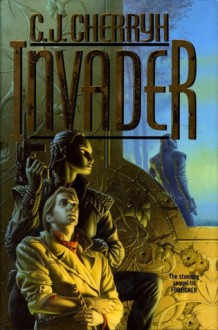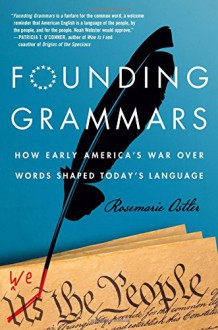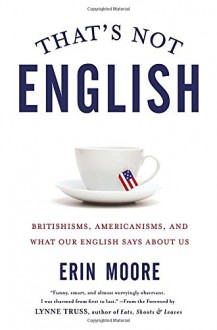

Invader picks up pretty much where Foreigner left off. Bren is barely out of surgery before he's called back to work. The starship Phoenix, the one that originally brought humans to the planet, has reappeared, and everyone is concerned. What do the ship folk want? Does Mospheira plan to deal with them and, if so, where does that leave the Treaty with the atevi?
Bren, still in a bit of pain (and, at the very beginning, foggy due to pain killers), finds himself in an extremely difficult position. Deana Hanks, his eventual successor, took over his job after Tabini stashed him away during the events of the previous book, and now she refuses to leave even though it puts her in violation of the Treaty. Hanks and her backers in the State Department believe that Bren has gone native and is no longer looking out for Mospheira's best interests. Hanks would oust Bren and become the new paidhi, except Tabini absolutely refuses to talk to her and would in fact have had her killed already if Bren hadn't specifically asked him not to. Although Bren is now getting much more information from Tabini and his bodyguards than he was in the first book, people are still keeping things from him, and he's almost completely blocked from communicating with the Foreign Office back in Mospheira.
Although he knows that he might be labeled a traitor, Bren offers to act as translator between the ship folk and the atevi. He has to convince the atevi that Mospheira won't automatically betray them in favor of the ship folk, clean up Hanks' political and linguistic messes, and figure out a solution to the ship problem that has the highest chance of being mutually beneficial to Mospheira and the atevi, all while simultaneously dealing with personal crises, terrifying gaps in his knowledge, and assassination attempts.
I read Foreigner a couple months ago and thought it was good, but frustrating. I absolutely loved Invader. The overall story seemed smoother, and Bren finally had the opportunity to show that he was extremely good at his job.
In the first book, Bren was an emotional mess stuck in a situation where his skills as paidhi were less immediately important than his bodyguards' ability to keep him safe. He received little-to-no useful information from anyone and basically had to operate blind. Since he was the POV character, readers had to operate blind too. It was uncomfortable, and I was so relieved to find that things were better in this book. Yes, Tabini's people censored what information they gave him, but they didn't keep him completely in the dark the way they did in the first book. His ability to communicate with Mospheira was hobbled, but he at least got enough information to speculate about what was going on.
I love characters who are really good at their jobs. In this book, Bren got to shine. I loved reading about him figuring out how to explain human thought processes in ways he figured the atevi would understand. I loved seeing the logic behind the arguments he used. I really loved Bren's first real-time translation between the ship folk and the atevi, and the mental and emotional shifts he had to go through in order to do that. Invader provided a bit more detail about how Ragi, the dominant atevi language worked – a combination of the usual vocabulary and grammar, plus a crap ton of mental math. Speaking of which, I was surprised that Bren didn't tell the ship folk that whichever person they assigned to learn Ragi should ideally be excellent at math.
Bren was at least as much of an emotional mess in this book as he was in the first one, but I enjoyed it more here – again, seeing him be good at his job helped a lot. The stuff with Barb was only a matter of time, anyway, and it was a relief to get it over and done with. Bren's emotional meltdowns were understandable considering the amount of stress he was under (and the amount of pain he was often in, plus his lack of sleep), and he very carefully made sure that those meltdowns only showed in front of the atevi he trusted most. And his "meltdowns" weren't actually all that bad compared to some of the things Hanks did. Refusing to pick up when Bren called her? Insisting on speaking Mosphei' so that she could snarl at Bren in front of an atevi audience? No wonder Tabini wanted to kill her.
Bren's desire to trust certain atevi led to additional problems, as he found himself fighting his instinct to assign human motivations to atevi behavior. He got along well with Tabini, Banichi, Jago, Tano and others, but him liking them and them seeming, from a human perspective, to like him didn't mean that they wouldn't one day do something that would seem to him like betrayal. He grappled with the possibility that Tabini and Ilisidi were using his human-ness against him, acting in ways they knew would cause him to drop his guard and trust them with more than he possibly should.
And then there was the stuff with Jago. That would be ethically and professionally problematic if he were a diplomat among humans, and certainly the people back in Mospheira wouldn't react well. Among atevi, he had no clue how any of it would be interpreted. I'm torn. On the one hand, I'm all “No, Bren, no!” On the other hand, I'm looking forward to the possibility of getting a better peek into atevi emotional lives. I want more than Bren's staff's reaction to him giving them gifts, Bren's unintentional popularity with atevi women, and even Tabini and Damiri's fascinating domestic squabble.
I suppose you could say this book was slow, but Bren's internal worrying, panic, and mental gymnastics made the pacing feel much faster than it was. At any rate, I enjoyed the story, the characters, the politics, the linguistic and cultural details, and the relationships, even when I had trouble following all the details. I'm glad I already have the second book, and I suspect I should put in an order for the next story arc soon.
Extras:
(Original review, including read-alikes, posted on A Library Girl's Familiar Diversions.)
Need to figure out how to turn the names of your OTP into one glorious portmanteau? Gotcha covered. (And the actual linguistics stuff is really cool, too).

Once the Revolutionary War ended, the grammar wars began. What sort of English should the citizens of the brand new, still experimental, democracy of the United States speak? Some wanted to make a break with the fusty old English of their former British overlords, while others thought it more seemly and reputable to stick with traditional standards as their young country took its place on the world stage. Both sides agreed on the compelling importance of grammar--many early American homes had only two volumes in their “libraries”--a Bible and a grammar book.
Founding Grammars is a history of the United States and its people as seen through the very interesting angle of language and education. Filled with fascinating facts and lots of interesting characters, the book begins with Noah Webster and his personal quest to update American English, and ends with the heated controversy of 1961 (and beyond) over changes made in third edition of the dictionary that bears Webster’s name--a controversy that still continues today in internet arguments over prescriptive versus descriptive grammar. Other historical figures in the book include Andrew Jackson, Abraham Lincoln, Theodore Roosevelt, Davy Crockett, Mark Twain, and publisher Horace Greeley.

Reading about words is always an irresistible meta-pleasure for me, but Erin Moore’s book about the differences between British and American English adds another layer of fascination by exploring the cultural reasons behind the word use variations--why it is that two nations who share so much, including a common language, still can’t completely understand each other. I considered myself fairly fluent in “British”, I read lots of British novels and love to watch BBC shows, but almost every chapter taught me something I didn’t realize about the variations between the way everyday words are used on either side of the pond, and what the cultural implications of those differences are.
For me the word “quite” has always made whatever word it modifies stronger--"quite pretty” means “very pretty” in my lexicon--but according to Moore adding “quite” to “pretty” in England qualifies “pretty” downward instead, so saying someone is “quite pretty” would be translated to something like the semi-insulting “fairly pretty” in Ameri-speak. Moore uses “quite” to go into amusing and enlightening detail about the well-noted difference between the way Americans tend to express themselves with a lot of enthusiasm, whereas the British are more inclined to understatement.
That’s Not English has thirty-some short, entertaining, and informative chapters, each focused on the varied uses or non-uses of one word (including some words I’d never heard of--mufti?), and what those differences of language indicate about the culture and mindset of the two nations. Moore is an American who married into a British family, so she’s learned the differences between the two versions of English firsthand.
I read a free advanced review copy of this book supplied to me by the publisher through the website LibaryThing. Review opinions are mine.